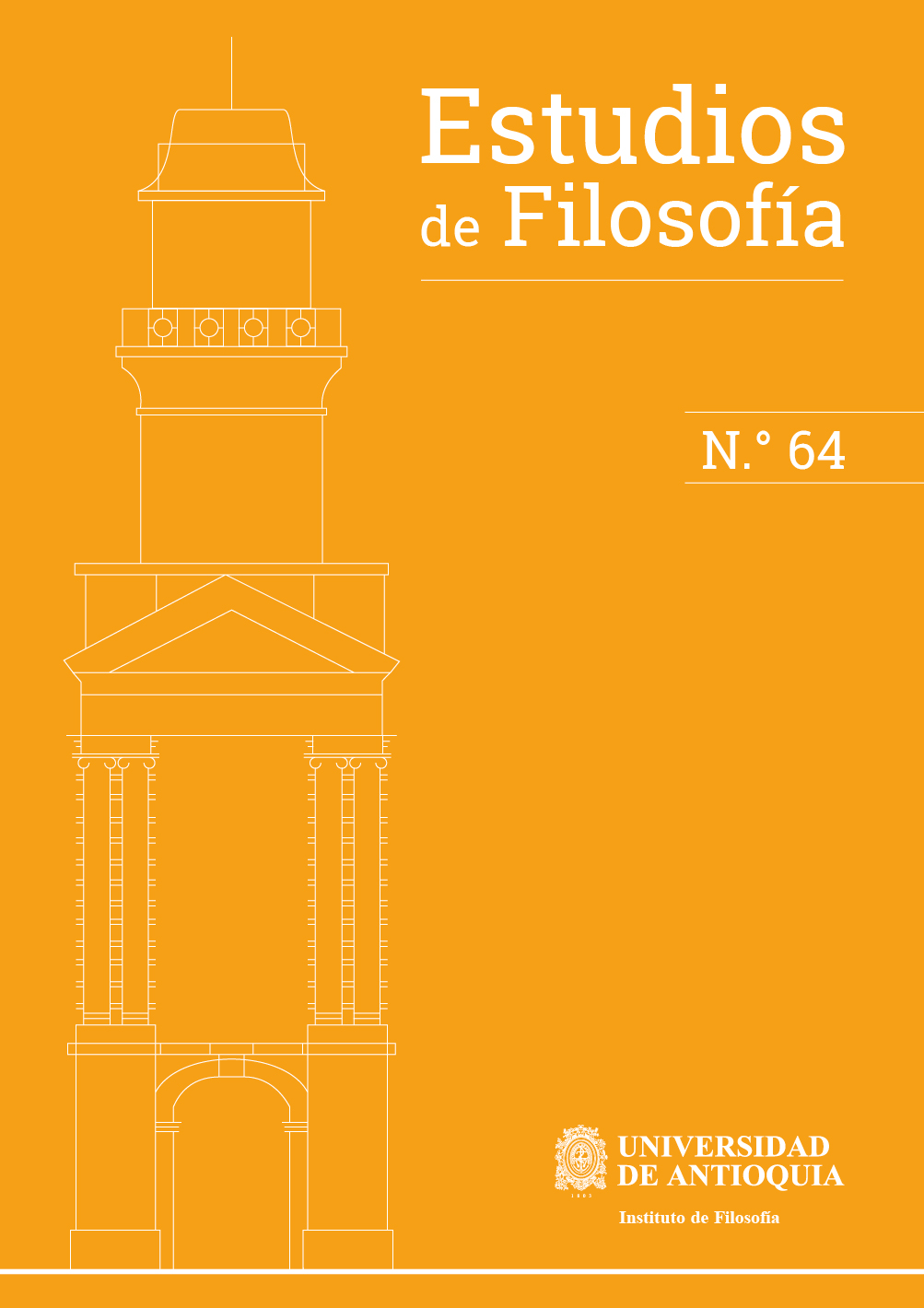Descartes and intellectual memory
DOI:
https://doi.org/10.17533/udea.ef.n64a06Keywords:
Descartes, corporeal memory, intellectual memory, theology, philosophyAbstract
This article investigates the doctrine of intellectual memory in Descartes. In his writings, Descartes recognized not only a bodily memory, explainable in purely physiological terms, but also an intellectual or spiritual memory. In this article, I investigate whether Descartes postulated an intellectual memory for theological reasons or for philosophical reasons. From the analysis of certain texts in which Descartes explains what intellectual memory is, the paper will show that Descartes appeals, for strictly philosophical reasons, to intellectual memory to explain some processes of reminiscence that occur in the human being. In contrast to what some contemporary commentators on the Cartesian doctrine of memory have argued, Descartes’s motivations for postulating intellectual memory are not theological.
Downloads
References
Ariew, R. (2014). Descartes and the first cartesians. Oxford University Press. https://doi.org/10.1093/acprof:oso/9780199563517.001.0001
Ariew, R., Des Chene, D., Jesseph, M., Schmaltz, T. & Verbeek, T. (2015). Historical dictionary of Descartes and cartesian philosophy. Rowman & Littlefield.
Beyssade, J. M. (2001). Études sur Descartes. Seuil.
Coímbranses (1593). Comentarii in libros Aristotelis qui parva naturalia appellantur. s.e.
Cottingham, J. (1993). A Descartes dictionary. Blackwell.
De Buzon, F. & Kambouchner, D. (2005). Le vocabulaire de Descartes. Ellipses.
Descartes, R. (1897/1913). Œuvres de Descartes (11 volúmenes) . C. Adam & P. Tannery, (Eds.) Leopold Cerf.
Eustaquio de San Pablo. (1647). Summa philosophica quadripartita de rebus dialecticis, moralibus, physicis, et metaphysicis. s.e.
Gilson, E. (1979). Index scolastico-cartésien. J. Vrin.
Gueroult, M. (1968). Descartes selon l’ordre des raisons, Tomo 2. Auber.
Joyce, R. (1997). Cartesian memory. Journal of the History of Philosophy, 35, 375-393. https://doi.org/10.1353/hph.1997.0046
Sancti Thomae de Aquino (1889). Opera omnia (Tomus 5.). Iussu Leonis 13 P. M.
Smith, K. (2015). The Descartes dictionary. Bloomsbury.
Sutton, J. (2007). Philosophy and memory traces. Descartes to connectionism. Cambridge University Press.
Published
How to Cite
Issue
Section
Categories
License
Copyright (c) 2021 Diego Díaz Quiroz

This work is licensed under a Creative Commons Attribution-NonCommercial-ShareAlike 4.0 International License.
Authors who publish with this journal agree to the following terms:
1. The Author retains copyright in the Work, where the term "Work" shall include all digital objects that may result in subsequent electronic publication or distribution.
2. Upon acceptance of the Work, the author shall grant to the Publisher the right of first publication of the Work.
3. The Author shall grant to the Publisher a nonexclusive perpetual right and license to publish, archive, and make accessible the Work in whole or in part in all forms of media now or hereafter known under a Creative Commons Attribution-NoCommercia-ShareAlike (CC BY-NC-SA 4.0), or its equivalent, which, for the avoidance of doubt, allows others to copy, distribute, and transmit the Work under the following conditions: (a) Attribution: Other users must attribute the Work in the manner specified by the author as indicated on the journal Web site;(b) Noncommercial: Other users (including Publisher) may not use this Work for commercial purposes;
4. The Author is able to enter into separate, additional contractual arrangements for the nonexclusive distribution of the journal's published version of the Work (e.g., post it to an institutional repository or publish it in a book), as long as there is provided in the document an acknowledgement of its initial publication in this journal;
5. Authors are permitted, and Estudios de Filosofía promotes, to post online the preprint manuscript of the Work in institutional repositories or on their Websites prior to and during the submission process, as it can lead to productive exchanges, as well as earlier and greater citation of published work (see The Effect of Open Access). Any such posting made before acceptance and publication of the Work is expected be updated upon publication to include a reference to the Estudios de Filosofía's assigned URL to the Article and its final published version in Estudios de Filosofía.















